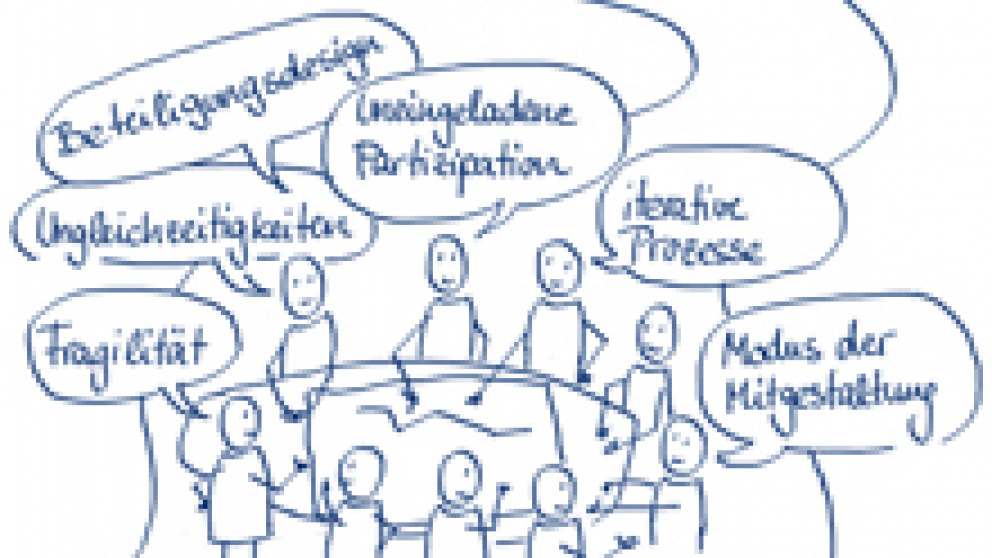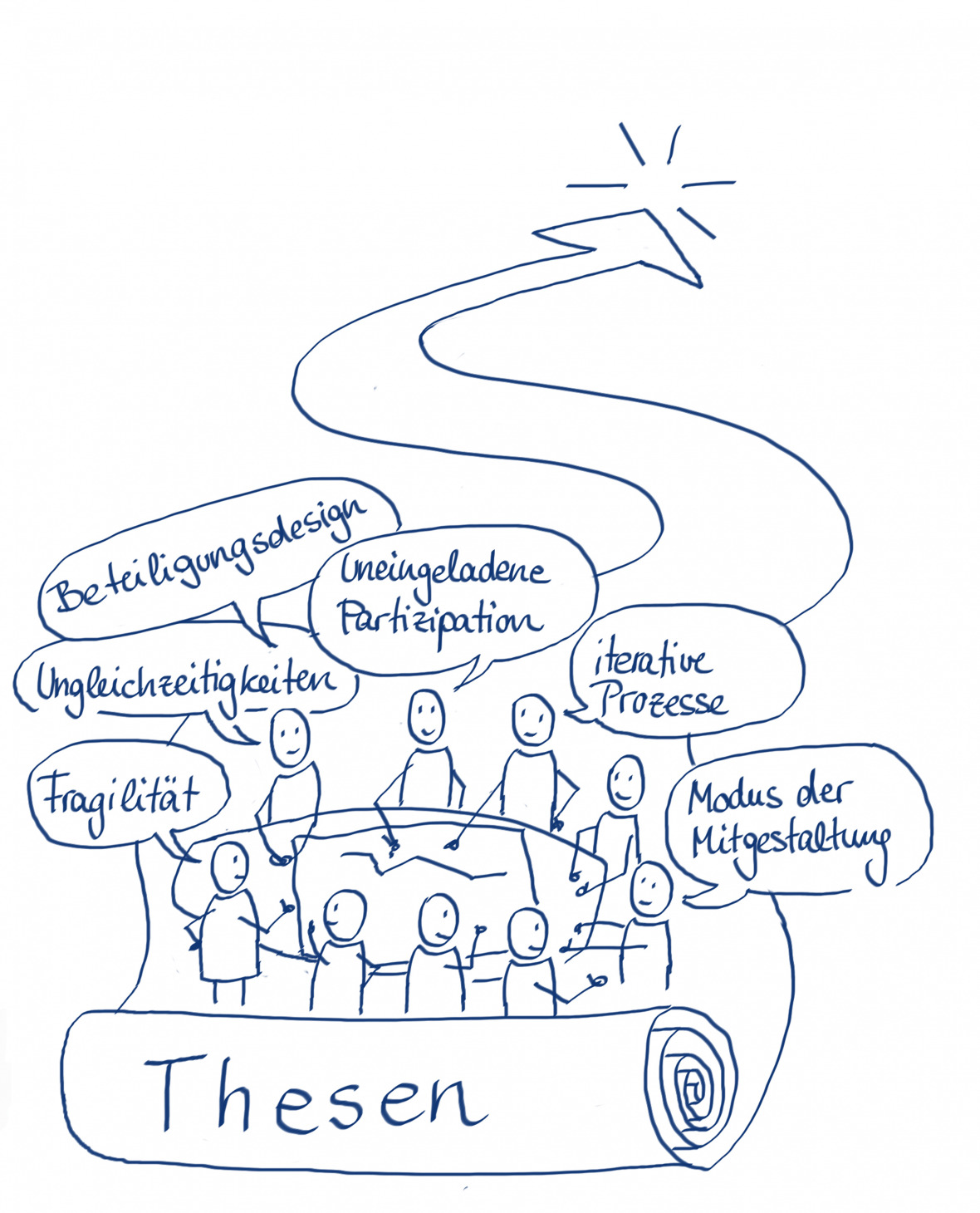Headline:
Citizen Participation in the Energy Transition: Researchers from KWI and IASS Present Recommendations
Project Demoenergy

A majority of the German population supports the energy transition in principle. Nevertheless, projects such as the construction of windfarms and transmission lines often meet with resistance from residents, citizen-led initiatives, local authorities, and representatives at state level. Processes of citizen participation can help to generate acceptance for infrastructure projects. But what does it take to make a participation process a success? Researchers from the IASS and the Institute for Advanced Studies in the Humanities in Essen (KWI) have sought answers to this question since 2011 in their project Demoenergy. This collaborative research project, which was funded by the Federal Ministry of Education and Research, concluded with a conference at the IASS on 15–16 February, where the participating researchers presented and discussed their findings with representatives from state ministries and agencies, the business sector, and civil society, together with process designers and moderators as well as researchers from a range of disciplines.

The energy transition as a proving ground for democracy
“The energy transition is one of the most important contemporary participation processes. A particular challenge in this context is, on the one hand, the desire of decision-makers to generate acceptance through participation in relation to specific projects – for the expansion of the grid, for example – whereas citizens, on the other hand, have a range of concerns in relation to the energy transition as a whole that they would like to discuss. This balancing act was scarcely researched prior to this,” explained Patrizia Nanz, the director of the transdisciplinary research area “Culture of Participation” at the KWI, and designated director of the IASS. Nanz initiated the Demoenergy project together with KWI director Claus Leggewie and IASS founding director Klaus Töpfer.
The trio believe that the energy transition is a challenge which Germany has to accomplish, and that citizens should have the opportunity to contribute to its success. “Germans still need to be convinced that the energy transition is a matter for democracy. Most people believe that it is a question of good planning. But difficult decisions require democratic solutions, and in that respect the energy transition is an illustrative proving ground for democracy,” said Claus Leggewie.
Participatory processes made to fit
The project aimed not simply to investigate participatory processes but also to initiate and implement processes together with actors from the field. The researchers from KWI initiated, implemented, and accompanied two participatory processes along the Ostbayernring transmission route together with grid operator TenneT TSO. The project’s findings are presented in ten propositions in a Working Paper published on the occasion of the conference. “Our hope is that citizen participation will be understood as more than just the application of different formats such as the World Café process and Future Search conferences”, emphasised Ina Richter from the IASS. On the contrary, these formats are the staging grounds for processes that affect and engage with diverse actors. They influence the design of participatory processes (What goals will a process pursue? Who will be involved?), their trajectories, and the outcomes that they deliver. Every situation calls for the development of a process that is made to fit.
The role of scientists in these processes, argued IASS director Ortwin Renn in the concluding discussion, is to provide citizens with the systems knowledge required to better understand and assess the positions put forward by planning authorities and project developers. Most importantly, they must be empowered to challenge often-used arguments along the lines of: “We’ve tried that a hundred times before and it has never worked!” Latitude is not a given within these processes, but must be carved out by the participants.
Establishment of foundation to finance participation next possible step
As well as discussing the findings of the Demoenergy project, participants at the conference looked ahead to the future. Discussions focussed on the next concrete steps such as the establishment of a “financing foundation” and public bodies to oversee participatory processes. Calls were made for greater cooperation between public authorities and private enterprises as the developers of infrastructure projects. However, the question also arose as to whether the current distribution of responsibilities across administrative entities should be maintained in its present form in view of the need to foster a culture of participation.
The visual charts available here provide a detailed overview of the discussions held across the two days of the conference.
To find out more, see the IASS Working Paper or the project website:
- Richter, I., Danelzik, M., Molinengo, G., Nanz, P., Rost, D. (2016): Bürgerbeteiligung in der Energiewende. Zehn Thesen zur gegenwärtigen Etablierung, zu Herausforderungen und geeigneten Gestaltungsansätzen. - IASS Working Paper, February 2016.
- The database www.energiebeteiligt.de provides an overview of the participation processes implemented in the German energy transition and enables users to compare processes across categories including their thematic focuses, target groups, formats, and methods.
- The websitewww.demoenergie.de will provide visitors with an overview of the publications created in the course of this project together with presentations of the project and its modules, and documents the processes in Windischeschenbach and Schwandorf.
